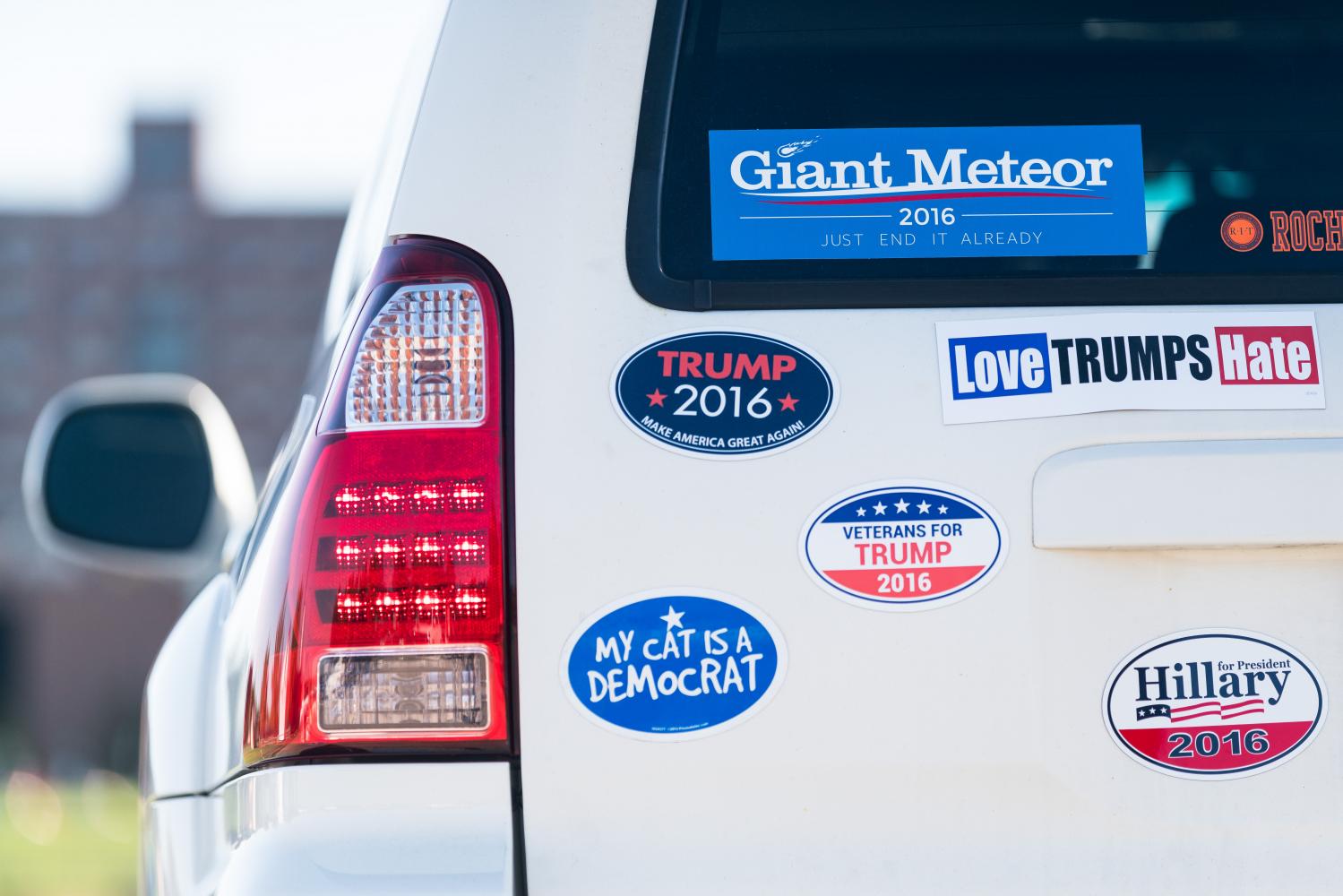Political Discourse in the Era of Social Media
by Kristin Grant | published Nov. 4th, 2016
In the grand scheme of American political history, social media has occupied only a smidgen of time. Yet, despite being relative newcomers, platforms such as Facebook and Twitter have already irrevocably shaped political dialogue. A recent Pew Research study found that Millennials in particular rely on social media above all other outlets as their source of relevant political news — and over 35 percent of those surveyed cited the feeds as the place they turn to first.
For both politicians and the public, adapting to this new way of communicating and receiving information has not been without a learning curve. However, as third year Network Systems Administration major and president of RIT’s College Republicans Ryan Brenek pointed out, social media has opened a new channel of communication between the candidates and the public. "People can follow what their beliefs are and be more in touch with the candidates. When there is good news or controversy, it spreads faster,” he said.
Second year Political Science and International Global Studies double major Alessandra Santarosa, who heads the RIT College Democrats, was in agreement with Brenek.
“Because of social media, you can get things out easier — it’s just a much better platform to reach out to people,” she said.
“Is it getting more people active and participating? Absolutely.”
College of Liberal Arts communication professor Mike Johansson, who has spent much of his career exploring the relationship between mass media and politics, had some thoughts on the benefits of their affiliation as well.
“Is it getting more people active and participating? Absolutely,” he said. “Back in the day,
Facebook and Twitter have also allowed people to have conversations with each other that would not have otherwise taken place, Johansson argued. “There are people who can tweet @realDonaldTrump and occasionally get a response. Same with Hillary Clinton. Whether it is actually her or someone from her campaign, that gives people a sense that they can reach into the campaign and engage with someone. I think that is a very good thing.”
For Brenek and Santarosa, social media has also helped their clubs get in touch with their broader political party.
“I’ve found it helps keep the community in the loop," Brenek said. "There are local chapters that follow us and we are able to coordinate with them and local politicians.” Santarosa said that her club uses Facebook and Twitter in similar ways.
Nevertheless, many of the qualities that make social media unique and accessible can often prove to be double-edged swords. One of those traits happens to be the users’ ability to customize what they see. However, that type of mindset only contributes to bias, according to Brenek.
“It’s like the confirmation theory in psychology: you get what you want to see and it proves what you want to believe," he said. "That leads people to be more upset, or less agreeable, and probably not want to work for a middle ground as much.”
While Johansson agreed with Brenek, he also added a caveat: “Social media is no different than the real world. We tend to see what we want to see, and overlook, or ignore, the things we don’t really want to,” he said. However, what makes Facebook different from the average social interaction is the anonymity a screen provides, he continued.. “You feel like you can give them electronic broadside and announce ‘I’m unfriending you because you clearly don’t think straight,’” Johansson explained. “It's odd, and sad in many ways. If you’re giving up friendships because people don’t think the way you do, what kind of world do you want to live in?”
"When you tweet someone, it's up for interpretation. You might say something one way, and a person can interpret it another."
Santarosa also brought up just how easily comments and posts can be misconstrued.
"I don't know if the internet will ever be a good place for civilized discussion."
One of the other critiques on online political conversation is how quickly it dissolves into a chaotic verbal bloodbath.
Johansson recommended that everyone educated themselves on the political leanings of both parties as a way to combat needless bias. “Depending on who you’re connected to on social media, you can get a broad range of opinions,” he said. "But if you’re only connected to like-minded people, then you’re getting a fairly narrow view of the election.”
“If people take it upon themselves, they can be educated. It starts with the individual,” Santarosa concurred. "If you don’t want to engage in argument, you don’t have to. Sometimes, you just have to take a step back.”“If people take it upon themselves, they can be educated. It starts with the individual,” Santarosa concurred. "If you don’t want to engage in argument, you don’t have to. Sometimes, you just have to take a step back.”
While social media is not without its share of problems, it has still become an invaluable fixture of political discourse. Platforms like Twitter and Facebook share an an incredible ability to educate and bring communities together. However, it is evident that as we continue to use these tools, we will collectively have to navigate several new dynamics of the political conversation. 



